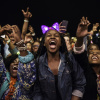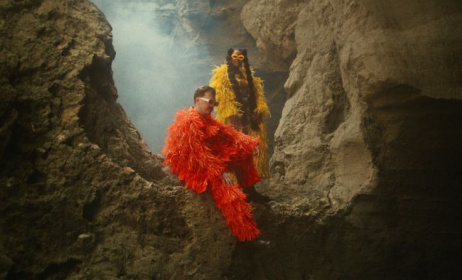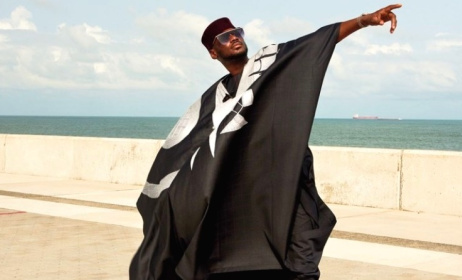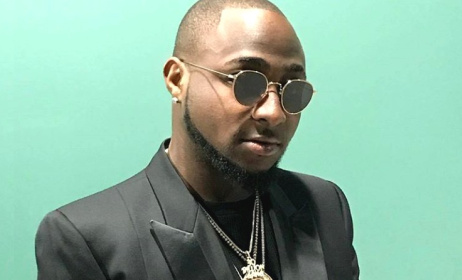Nigerian music videos show in Brazil’s Ex Africa exhibition
A series of Nigerian music videos are currently part of an exhibition showing in Sao Paolo, Brazil.
 A part of the Ex Africa exhibition in Brazil shows a scene from Yemi Alade's 'Johnny'.
A part of the Ex Africa exhibition in Brazil shows a scene from Yemi Alade's 'Johnny'.
The Ex Africa exhibition has been called the largest show of contemporary African art to show in Brazil. Supported by the Ministry of Culture, the event is intended to showcase diversity in the Brazilian art space.
“At a time when the value of African heritage to many cultures is in vogue, this exhibition provides a landscape of Africa’s current artistic production, as well as experiences which make possible to recognise and reflect on the effects of those influences on the art being made throughout the world,” reads a statement from the host cultural organisation Centro Cultural Banco do Brasil.
Historically, the countries Brazil and Nigeria are linked: some slaves taken to the former country returned to the city of Lagos in the latter. Today, Lagos hosts a Brazilian Quarter and some families in the city hold onto their Portuguese names. There are similar situations in other African countries.
This connection is explored by Ex Africa – which is divided into four sections, The Echo of History, Bodies and Portraits, The Urban Drama and Musical Explosions. Music from the continent is represented by a section tagged "Lagos Club", as well as some of the work of the artist Nastio Mosquito, who works with video, installation, experimental music and poetry. Lagos Club, according to the exhibition curator Alfons Hug, presents, “all variations of Nigerian pop in music videos”.
The Lagos Club section was curated by musician Ade Bantu and Nigerian-French architect Francoise Aramide Akinosho. Both selected videos around four colour-coded themes, namely Money, Power, God and Sex. For Money, the videos for 9ice’s ‘Living Things’, Timaya’s ‘When Money No Dey’ and others. Wizkid’s ‘Ojuelegba’, Sound Sultan’s ‘Ghetto Love’ are among the selections for Power.
Korede Bello’s ‘Godwin’ and Phyno’s ‘Fada Fada’ are part of the God theme. The Sex theme has Falz’s ‘Soldier’, Tekno’s Pana, Skuki’s ‘Pass the Agbara’ and Yemi Alade’s ‘Johnny’.
The concept is for viewers to experience Lagos, says Ade Bantu: “We commence the journey through a reinvented soundscape of 6 of the busiest bus stops in Lagos. The hustle, bustle and confusion of major commuting points of entry and departure are deliberately presented in multi-layered soundbites to distort the senses. Heated arguments, blaring truck horns, okada riders, screaming bus conductors and chanting street vendors compete for attention.”
He adds: “We enter the world of virtual reality through music videos projected on a panel of 3D- pixilated walls erected to simulate a vertical urban skyline.
“The viewer is drawn closer to the clips, his curiosity awoken and absorbed by the succession of screens, the cacophony of sounds decodable only when viewed and experienced in close proximity. The space divided in vivid colours covers four existential themes that fuel the desires and obsessions of Lagosians. The effusion of emotions outlines a clear order that defines the steps to success: first Money (Yellow), then self-acquired Power (Red), followed by the illusion of a special privilege and access to a personal God (Blue) and the ultimate gratification, Sex (Purple).”
Before Ex Africa concludes its run, it would have shown in four Brazilian cities, including Rio de Janeiro and Brasilia, each city hosting the exhibition for three months.





























Comments
Log in or register to post comments